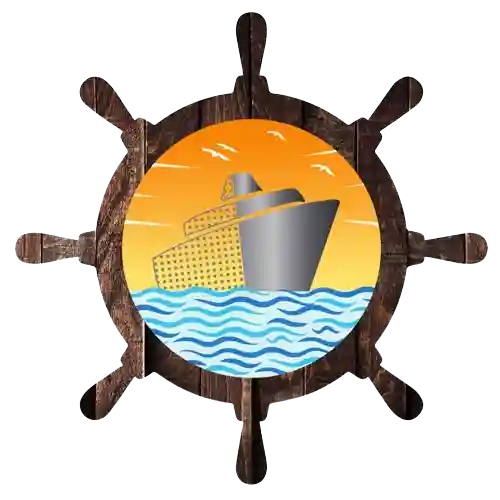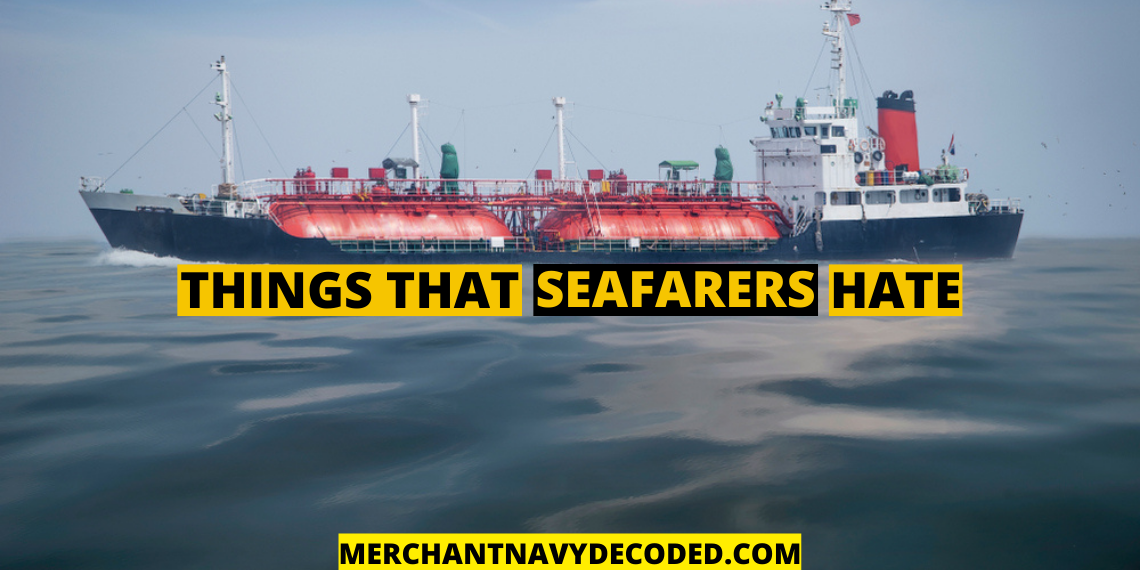Things Seafarers Hate Onboard
The life of a seafarer is very unpredictable. They live in a bleak world where no national laws are applicable, a place where violent waves can wash them away into the sea. Sometimes they sail for many months without setting foot ashore. No wonder they get so excited when they see familiar faces or meet their family members on returning home.

The ship is like a second home for most of the seasoned seafarers who have spent almost half of their adult lives onboard. Hence, they have to find happiness in small things in order to survive their long lonely contracts onboard. Organising barbeque parties, playing cricket on deck, cross equator ceremony, etc., are some of the activities through which seafarers enjoy and take a break from their hectic and stressful schedules.

Although, seafarers don’t crib about small things as the life at sea has made them tough enough to face any situation and thrive under difficult circumstances, yet there are some things that most seafarers absolutely hate onboard. In this blog, we will be discussing some of the things that seafarers hate onboard.
Paperwork

This is the one thing that is hated by almost all officers onboard, deck or engine, irrespective of the department. That is one of the reasons why most of the paperwork is handed over to the deck cadet or trainee marine engineer. The paperwork never ends onboard, especially on tankers. There are various permits that need to be filled before carrying out any task that involves danger to the life of the crew member involved in the task. Apart from this, there are various checklists and reports that need to be prepared regularly and sent to the company for review.
Cargo Operation on Sundays

Sunday is the only day in the entire week when seafarers get to relax and take out time from their hectic work schedules for other leisure activities onboard. Although deck officers still have to report for their regular 8 hours of watchkeeping duties, but they take the rest of the day off to rest or indulge in other fun activities like watching movies, playing table tennis, etc. For the rest of the crew members, onboard Sunday is a holiday. After doing 1 hour of routine cleaning duty in the morning they can take the rest of the day off.
Generally, Sunday is a very calm and peaceful day in the life of seafarers who work hard tirelessly the entire week. Unless the vessel is in port for loading/discharging operation. Then the same day that is otherwise really peaceful and relaxing turns into a very hectic and stressful day. The entire crew works under immense pressure during cargo operations, especially onboard tankers. The officers and crew members have to keep 12 hours of port watch (6 ON/6 OFF). The work/rest hour schedule of the entire crew gets disturbed during port operations. This is the one thing that the seafarers hate onboard.
Delay in Sign off

Signing off from a vessel after completing 6 – 9 months of sailing is the best part of the entire contract for any seafarer. Every seafarer wants a timely sign-off from his/her vessel. This is a huge factor that seafarers consider before joining a new company i.e., whether the particular shipping company provides timely sign-off or not. Long extended periods of sailing affect the mental health and well-being of seafarers. Due to the hectic work schedule, and various rules and regulations introduced in the shipping industry in the last few years, sailing onboard has become really difficult.
On top of all this, if seafarers do not get timely sign-off, they become frustrated onboard which may lead to the rise of some really volatile situations. Many times, seafarers refuse to carry out their jobs and tasks onboard on not being signed off on time.
Port State Control (PSC)/Vetting Inspections

Port State Control is the inspection of foreign ships in national ports to check their seaworthiness. And that the condition of the equipment onboard complies with international regulations, and the ship is manned and operated in compliance with these rules. On the other hand, Vetting inspection is a grading system of a ship, enabling a potential charterer to compare similar ships and choose the best for his needs, to maximize efficiency.
Both these inspections are really important for the smooth operation and management of a ship. The shipping companies put a lot of emphasis on these inspections and continuously pressurise the ship’s crew to prepare well for these inspections. Generally, preparation for vetting inspections starts a month prior to the inspection. That month is really difficult and stressful for the officers as well as the crew onboard. The officers have to complete all their pending paperwork while the crew is tasked with carrying out proper maintenance of the ship before the inspection.
Berthing on Arrival

The term berthing means the process of mooring a ship in a particular port or harbour, mainly for the purpose of loading/discharging. Mooring operations are physically very exhausting as it requires the handling of ropes. When a ship is given permission to directly berth in a terminal on arrival, it is called berthing on arrival. Seafarer hate this term as sometimes the ship arrives at a port in the odd hours of the night when most of the crew members are sleeping.
If the vessel gets the permission to berth on arrival all the deck crew members have to wake up in the middle of the night and report for mooring stations. This completely disturbs their rest hours. Once the vessel is berthed the on-duty officers and crew members have to keep port watch (6 Hrs On/6 Hrs Off).
Hence, the entire schedule of seafarers becomes very hectic once a vessel is berthed. Therefore, most seafarers prefer anchorage on arrival, this gives them some time to relax and gather their energy before cargo operations
Working onboard is unlike any other regular 9 – 5 job. Seafarers don’t have the luxury of complaining about their jobs or bosses like other shore job employees. They have to adjust to the environment and culture onboard a ship rather than cribbing about it. They have to find the solution to a particular problem themselves rather than just reporting it to the company. This quality separates seafarers from the rest of the world. Their ability to adjust and thrive in strenuous situations makes them unique.
“You can measure a man’s character by the choices he makes under pressure.”
Sir Winston Churchill
Disclaimer :- The opinions expressed in this article belong solely to the author and may not necessarily reflect those of Merchant Navy Decoded. We cannot guarantee the accuracy of the information provided and disclaim any responsibility for it. Data and visuals used are sourced from publicly available information and may not be authenticated by any regulatory body. Reviews and comments appearing on our blogs represent the opinions of individuals and do not necessarily reflect the views of Merchant Navy Decoded. We are not responsible for any loss or damage resulting from reliance on these reviews or comments.
Reproduction, copying, sharing, or use of the article or images in any form is strictly prohibited without prior permission from both the author and Merchant Navy Decoded.



Very well written devashish.👍🏼👍🏼